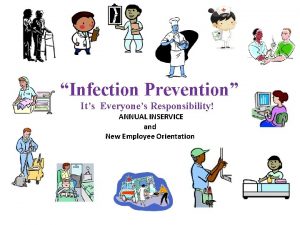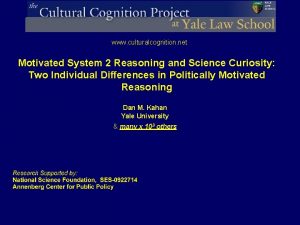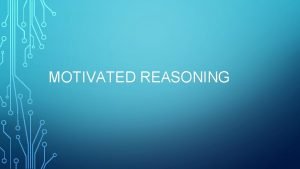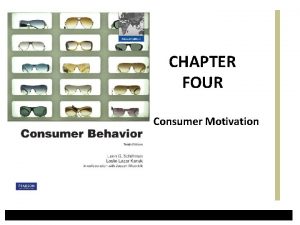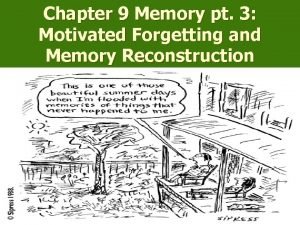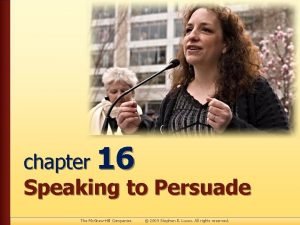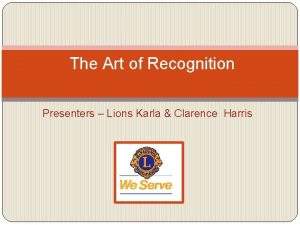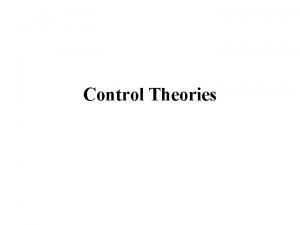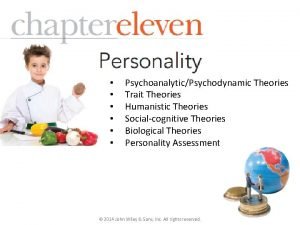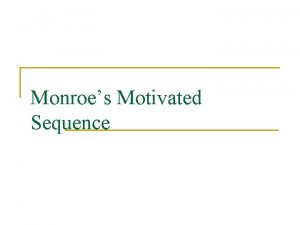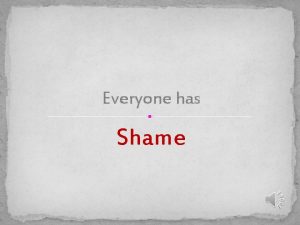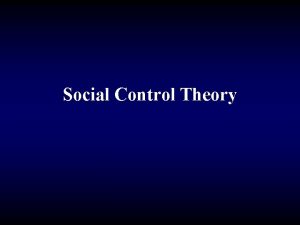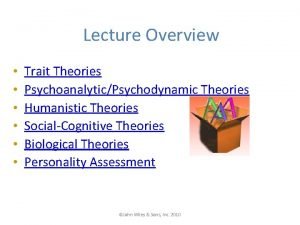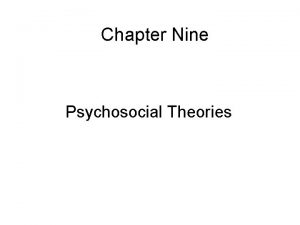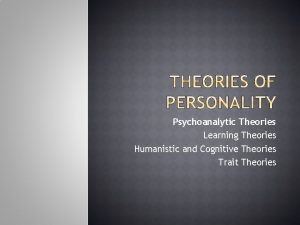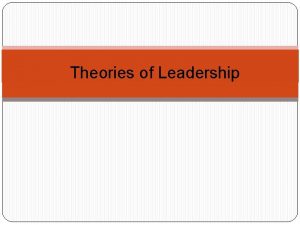Control Theories Control Theory Everyone is motivated to















- Slides: 15

Control Theories

Control Theory • Everyone is motivated to break the law • Deviance results from weak social constraints

Social Sources of Control • We connect to society via social groups • Social rewards are contingent on staying out of trouble

Hirschi’s Social Bond Theory • People break the law because they have not internalized society’s rules • Internalization requires social bonds

Hirschi’s Social Bond Theory • Emotional Attachment • Material Commitment • Temporal Involvement • Moral Belief

Age-Graded Theory of Informal Social Control • Sampson and Laub (1993) extended social control theory to explain changes in offending behavior over the life course • Questions:

The Life-Course Perspective • Trajectories = • Transitions/Turning Points =

Age-Graded Theory of Informal Social Control • Transitions increase or decrease informal social control • Life course persistent v. adolescent limited

Policy Implications • Less reliance on incarceration • Job training and family counseling • Use of community based punishment

A Contrasting View: Self-Control Theory • Control resides in the person, not in his or her relationship to social groups

The Origins of Self-Control • Young children naturally break rules • By age 8 -10, kids most kids learn to control their behavior • Parenting is the key

Empirical Patterns that Fit • Offenders tend to be generalists • Most offending requires no special skil • Offending usually brings immediate benefit

A General Theory • Self-control is the only important causal factor for understanding crime/deviance • Other factors are spurious (also due to selfcontrol)

Policy Implications of Self-Control Theory • Focus on early family-based intervention • Parents must monitor and punish behavior

Code of the Streets? • Informal social control theory – Neutralizations • Age-graded theory of informal social control • Self-control theory
 Motivated learning for everyone
Motivated learning for everyone Good afternoon to you all
Good afternoon to you all Infection control is everyone's responsibility
Infection control is everyone's responsibility Motivated system 2 reasoning
Motivated system 2 reasoning Hawthorne theory of motivation
Hawthorne theory of motivation Motivated skills card sort
Motivated skills card sort Motivated reasoning
Motivated reasoning Reasons for exploration 3 g's
Reasons for exploration 3 g's Are the sought-after results of motivated behavior
Are the sought-after results of motivated behavior Define motivated forgetting
Define motivated forgetting Monroe's motivated sequence
Monroe's motivated sequence When are capabilities-motivated acquisitions essential?
When are capabilities-motivated acquisitions essential? After 1880 european nations sought
After 1880 european nations sought Lions are motivated by recognition
Lions are motivated by recognition Monroe's motivated sequence
Monroe's motivated sequence Motivated last thing you want do
Motivated last thing you want do


